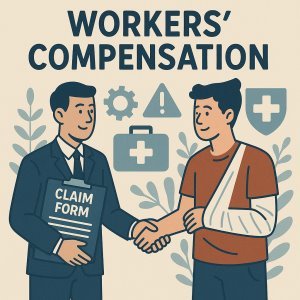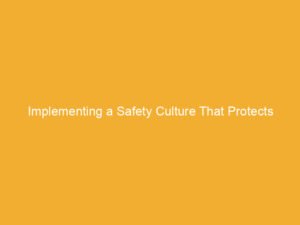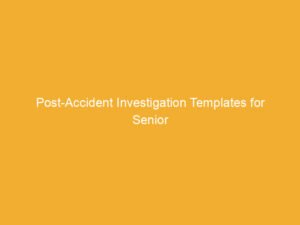
Designing a Workers’ Comp Policy—Staffing Services
July 26, 2025Vehicle Patrol Exposures: Managing Auto-Related Workers’ Comp in Georgia
July 26, 2025

In the dynamic and fast-paced surroundings of concerts and festivals,security guards play a critical role in ensuring the safety and smooth operation of these large-scale events.As demand for security personnel intensifies during peak season, it is indeed essential for employers and workers alike to understand the nuances of subcontractors/” title=”Workers Compensation for 1099 … & …”>workers’ compensation coverage specific to this industry. This article explores the key considerations surrounding workers’ comp for concert and festival security guards, highlighting coverage requirements, seasonal employment challenges, and best practices for managing risk effectively during the busiest times of the year.
Table of Contents
- Concert and Festival Security Guards workers’ Compensation Risks During Peak season
- assessing liability and Coverage Gaps for Event Security Personnel
- Best Practices for Ensuring Comprehensive Workers’ Comp Protection
- Strategic Recommendations for Managing Claims and Reducing Costs
- Q&A
- To Wrap It Up
Concert and Festival security Guards Workers’ Compensation Risks During Peak Season
- Overexertion due to extended shifts and heightened activity levels
- Injuries linked to crowd surges or altercations
- Exposure to hazardous weather conditions leading to heatstroke or hypothermia
- Slip and trip accidents caused by event debris or uneven terrain
| Risk Category | Common Injuries | Compensation Considerations |
|---|---|---|
| Physical Confrontations | Bruises, fractures, concussions | Comprehensive medical coverage and disability support |
| Environmental Hazards | heat exhaustion, frostbite | Preventive care claims and ongoing monitoring |
| Slip and Fall | Sprains, fractures | Rehabilitation and wage replacement coverage |
Assessing Liability and coverage Gaps for Event Security Personnel
- Scope of Duties: Verify that all security responsibilities, including emergency response, are encompassed within the policy.
- Temporary vs. Permanent Status: Clarify classifications to avoid misinterpretations that exclude temporary workers from coverage.
- third-Party Liability: Evaluate insurer clauses related to subcontractors or volunteers who also participate in security roles.
- Exclusion Clauses: Identify any exclusions specific to event-related injuries or mass gatherings.
| risk Element | Common Coverage Issue | Recommended Action |
|---|---|---|
| Temporary Workers | Not listed in policy | Add rider for seasonal employees |
| On-Site Violence | Exclusion of assault injuries | Seek enhanced assault coverage |
| Subcontractors | Liability shifts to host | Require certificates of insurance |
Best Practices for Ensuring Comprehensive Workers’ Comp Protection
Partnering with reputable insurance providers who specialize in workers’ compensation for event security is crucial. This ensures coverage is aligned with the unique risks faced during peak seasons like concerts and festivals. It is indeed vital to regularly review and update policies to include seasonal staffing increases, higher exposure to physical hazards, and potential third-party liabilities. Staying proactive in interaction with your insurer about fluctuating workforce sizes can prevent costly coverage gaps at critical times.
Implementing thorough safety training and documentation not only reduces workplace incidents but also strengthens your workers’ comp claims process. Maintain detailed records of employee training sessions, incident reports, and safety audits. Highlighting adherence to Occupational Safety and Health Management (OSHA) standards demonstrates a commitment to risk mitigation, which can positively influence insurance premium rates. Consider integrating the following checklist for ongoing compliance:
- Seasonal hazard identification and mitigation strategy updates
- Frequent refresher courses for security guards on emergency protocols
- Clear incident reporting procedures accessible to all staff
- Utilization of personal protective equipment (PPE) tailored to venue-specific risks
| best Practice | benefit | Frequency |
|---|---|---|
| Policy review and updates | Ensures full coverage during fluctuating seasons | Quarterly |
| Employee safety training | Reduces injury claims, enhances preparedness | Monthly |
| Incident documentation | Streamlines claims process | As incidents occur |
Strategic Recommendations for Managing Claims and Reducing Costs
Effectively managing claims requires a proactive approach grounded in thorough documentation and continuous communication with all parties involved. Implementing a robust incident reporting system allows security teams to capture every detail promptly, which helps reduce ambiguities during claims processing. Additionally, providing ongoing safety training tailored to the unique challenges of crowd control and emergency response equips guards with the skills to minimize risks on site. Prioritizing early intervention through speedy medical assessments and the use of trusted healthcare providers ensures claims are resolved swiftly, preventing unnecessary cost escalations.
To further reduce overall workers’ comp expenses, consider adopting these cost-management strategies:
- Regular Risk Assessments: Identify and address potential hazards before they result in injuries.
- Return-to-Work Programs: Facilitate modified duties that enable injured employees to resume work sooner, reducing lost time claims.
- Claims Auditing: Periodic review of claims to detect inconsistencies or opportunities for cost recovery.
| Strategy | Benefit | Implementation Timeframe |
|---|---|---|
| Safety Training Workshops | Fewer incidents during events | Ongoing, every 3 months |
| Return-to-Work Policy | Reduced lost workdays | Immediately after injury |
| Claims Auditing | Improved cost accuracy | Quarterly reviews |
Q&A
Q&A: Concert & Festival Security Guards – Workers’ Compensation Coverage During Peak Season
Q1: Why is workers’ compensation coverage crucial for concert and festival security guards, especially during peak season?
A1: Concert and festival security guards face heightened risks during peak season due to increased event frequency, larger crowds, and extended working hours. Workers’ compensation coverage ensures that if guards sustain injuries or illnesses related to their duties, they receive timely medical treatment and wage replacement benefits, protecting both the worker and the employer from financial liability.
Q2: What types of injuries are most common among security guards working at concerts and festivals?
A2: Common injuries include slips,trips,and falls,strains from crowd control activities,assaults or confrontations with attendees,heat-related illnesses,and repetitive stress injuries from prolonged standing or patrolling. These risks are amplified during high-attendance events typical of peak season.
Q3: How does workers’ compensation coverage apply when a security guard is injured offsite but related to work duties?
A3: Workers’ compensation generally covers injuries that occur during the course of employment or while performing work-related duties. If an offsite injury directly relates to job tasks-such as traveling between event locations or required training sessions-it may be compensable. Each claim is evaluated on its specific circumstances.
Q4: Are independent contractor security guards eligible for workers’ compensation benefits?
A4: Typically, independent contractors are not covered under an employer’s workers’ compensation policy.However, event organizers and security firms should carefully assess classification and contract terms, as misclassification can lead to liability. Some jurisdictions require coverage or alternative protections for contractors engaged in high-risk roles.
Q5: What steps can employers take to ensure adequate workers’ compensation coverage during peak season?
A5: Employers should verify that all security personnel are properly classified and covered under workers’ compensation policies. It is essential to maintain updated payroll records, provide comprehensive safety training, and conduct regular risk assessments. Additionally, communicating injury reporting procedures clearly to workers can facilitate faster claims processing.
Q6: How does workers’ compensation impact the overall cost structure for security firms during peak season?
A6: Workers’ compensation premiums may rise during peak season due to increased payroll and heightened risk exposure. However,investing in preventative safety measures and effective risk management can reduce injury rates and associated claims,ultimately stabilizing premium costs and protecting firm reputation.
Q7: What legal obligations do event organizers have regarding workers’ compensation for security guards?
A7: Event organizers must comply with local and state workers’ compensation laws,which typically mandate coverage for all employees,including temporary and seasonal security staff. When using subcontractors, organizers should ensure subcontractors maintain proper workers’ compensation insurance to avoid liability.
Q8: How can security guards protect their rights if injured on the job during a festival or concert?
A8: Injured security guards should report the injury to their employer immediately, seek medical evaluation, and file a formal workers’ compensation claim. Keeping detailed records of the incident and treatment can support a timely and fair resolution of benefits.
Q9: What trends are emerging in workers’ compensation coverage for concert and festival security?
A9: Increasing gig economy participation,evolving labor classifications,and heightened awareness of mental health risks are shaping workers’ compensation practices. some insurers are expanding coverage options to include post-traumatic stress and other psychological conditions linked to the unique stressors of security work at large events.
Q10: Where can employers and security professionals find guidance on workers’ compensation compliance in the events industry?
A10: Reliable resources include state workers’ compensation boards, industry associations such as the International Security Driver association (ISDA), and specialized legal counsel. Staying informed of regulatory changes and best practices is key to maintaining compliance and effective risk management.
To Wrap it Up
ensuring comprehensive workers’ compensation coverage for concert and festival security guards during peak seasons is essential for protecting both employees and event organizers. Given the dynamic and frequently enough high-risk nature of these environments, proactive risk management and clear communication regarding coverage can mitigate potential liabilities and promote a safer workplace. By prioritizing compliance and employee well-being, organizations not only safeguard their teams but also contribute to the overall success and professionalism of their events.
“This content was generated with the assistance of artificial intelligence. While we strive for accuracy, AI-generated content may not always reflect the most current information or professional advice. Users are encouraged to independently verify critical information and, where appropriate, consult with qualified professionals, lawyers, state statutes and regulations & NCCI rules & manuals before making decisions based on this content.




